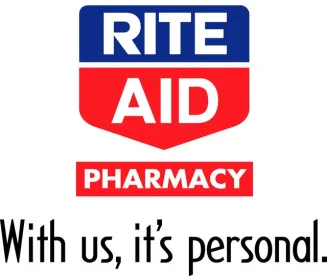In Brown v. Rite Aid Corp., C.A. No. 2017-0480-MTZ (Del. Ch. May 24, 2019), the Delaware Court of Chancery granted the motion for partial summary judgment of plaintiff Franklin Brown (“Brown”), entitling Brown to indemnification by defendant Rite Aid Corporation (“Rite Aid”) for legal fees and expenses Brown incurred in proceedings arising out of a corporate fraud and accounting scandal in 2002. The court re-affirmed the principles that mandatory indemnification is dependent strictly on the outcome of the underlying action and that the “indemnitee need not be adjudged innocent in some ethical or moral sense,” a defendant need not pursue victory efficiently, and that indemnification is based on the reason by which a defendant is party to the action.
Brown is a former officer and director of Rite Aid who was convicted on criminal charges arising from a corporate scandal involving Rite Aid. The many federal suits concerning the corporate wrongdoing were combined into a single multi-district litigation in the United States District Court for the Eastern District of Pennsylvania, which Rite Aid settled. The final order in that proceeding “permanently barred, enjoined and restrained [Rite Aid] from commencing… any other claim… against [Brown]…relating to the Settled Claims” (the “Bar Order”).
Notwithstanding the Bar Order, Rite Aid later sued Brown in Pennsylvania state court, asserting claims against Brown for breaches of his duties and obligations as a director and officer of Rite Aid and seeking a declaratory judgment that it was not responsible for Brown’s legal costs. The state court proceeding lasted for over a decade, with the court ultimately dismissing the claims against Brown. Following the dismissal, Brown filed this action seeking indemnification and advancement in connection with the state court proceeding.
The court found that Brown had the right to be indemnified by Rite Aid under the Delaware General Corporation Law (the “DGCL”), Rite Aid’s bylaws, and the company’s corporate charter. All three sources “present different paths to the same place: mandatory indemnification” of any corporate officer who prevails on the merits or otherwise in a lawsuit over his role with the company.
On all counts arising in the Pennsylvania state court proceeding, the court found that Brown was a “covered person” defending himself in a “covered proceeding” who succeeded “on the merits or otherwise,” and thus was entitled to indemnification. Rite Aid’s claims in the state court proceeding based on Brown’s misconduct as an officer or director were dismissed pursuant to the Bar Order. Rite Aid argued that Brown’s wasteful use of other defenses when a clear remedy at law was available (i.e., the Bar Order) should limit indemnification to expenses incurred for his successful arguments. The court was not persuaded, and in granting Brown indemnification cited DGCL Section 145(c)’s language “on the merits or otherwise,” explaining that the court looks strictly at the outcome of the underlying action. The court reasoned that even if an indemnitee succeeds on a technical defense rather than the merits, like Brown did in the state court action, he is entitled to indemnification.
The court held that Brown also was entitled to indemnification in defending the declaratory judgment claim. Rite Aid had sought a declaration that, because of Brown’s conduct, Brown was not entitled to any further payment from Rite Aid, and argued that because the compensation is owed to Brown in his individual capacity, rather than his former capacity as an officer or director, indemnification is precluded. But the court found that even if the payments were owed to Brown as an individual, Brown was still entitled to indemnification for defending the declaratory relief claim because the claim arose “by reason of the fact of his corporate status.” The court distinguished this case from Stifel Financial Corp. v. Cochran, 809 A.2d 555 (Del. 2002), where the individual breached his employment agreement by failing to repay certain amounts, competing within one year of his termination, and not arbitrating disputes arising out of the agreement—actions all of which the court in Stifel found the individual took in his personal capacity, outside the scope of his employment. Unlike in Stifel, Brown’s actions were taken in his capacity as an officer or director, regardless of the fact that, like in Stifel, the payments owed to Brown were sourced from an employment contract.
Accordingly, the court held that Brown was entitled to indemnification on all counts in the Pennsylvania state court proceeding and entitled to indemnification for the fees incurred in pursuing a successful action for indemnification under Delaware law.




 />i
/>i

